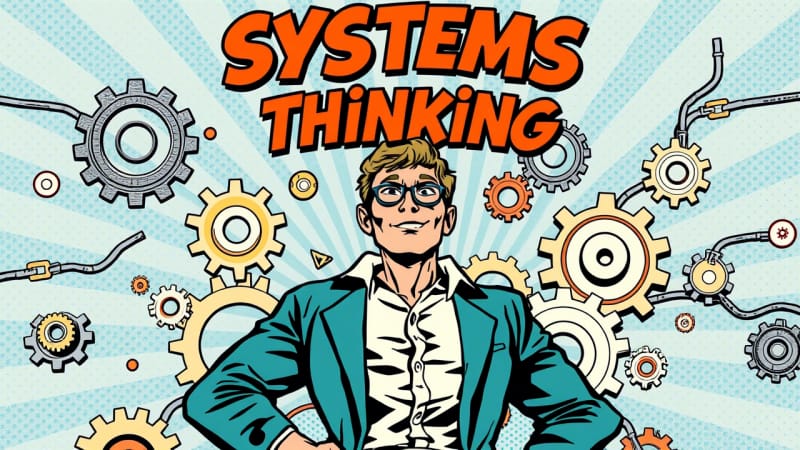- High-Stakes Human Skills
- Posts
- Systems Thinking
Systems Thinking
Building Career Infrastructure That Scales

You don't build a career. You architect it.
Like Amazon Web Services, your professional life should run on modular systems, scalable assets, and redundant growth paths. Most professionals are still running their careers like single-server applications, one failure away from complete shutdown. Meanwhile, the elite are building distributed systems that scale automatically.
Jobs are brittle. Systems endure. Your next opportunity isn't a position, it's infrastructure.
The difference between those who plateau at middle management and those who build empires isn't talent or luck. It's architecture. While others optimize for the next promotion, systems thinkers design career infrastructure that generates compound returns across decades.
The Career Architecture Framework
Traditional career advice treats your professional life like a ladder. Systems thinking treats it like cloud infrastructure. Each component serves multiple functions, connects to other systems, and scales independently based on demand.
The Seven Core Modules:
1. Compute Power (Your Core Skills)
Your processing capabilities that scale across contexts
Like AWS EC2 instances, your skills should be modular, scalable, and deployable across multiple contexts. Most professionals develop skills in isolation. Systems thinkers build skill clusters that amplify each other.
The Skill Stack Architecture:
Foundation Layer: Domain expertise that serves as your primary compute power Multiplier Layer: Communication, leadership, and strategic thinking that amplify your foundation
Interface Layer: Technical skills that connect your expertise to market demands Automation Layer: AI and system skills that handle routine cognitive work
The challenge most face is skill fragmentation. They learn Excel for one role, Python for another, public speaking for a third. Each skill exists in isolation, providing linear value. Systems thinkers design skill architectures where each capability enhances the others.
2. Storage Systems (Your Knowledge Assets)
Information architecture that serves multiple applications
Your accumulated knowledge should work like Amazon S3, accessible from anywhere and serving multiple applications simultaneously. Most professionals treat their expertise like local hard drives, only valuable when they're personally operating the machine.
Reply